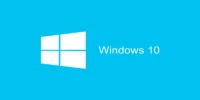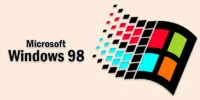Embedded Software Testing Tools | Features, Popular Tools & Examples
Published: 4 Jun 2025
Embedded Software Testing Tools
Embedded software testing tools help check if tiny programs inside machines work properly. These tools test the software found in devices like washing machines, cars, and smart TVs. They make sure everything runs smoothly without errors. Using these tools saves time and keeps devices safe. Let’s learn how they help in real life!
What is Embedded Software Testing?
Embedded software testing means checking if the small programs inside machines or devices work the right way. These programs control things like washing machines, smart TVs, or car systems. Testing makes sure everything runs smoothly and safely. It helps catch problems before the device is used.

Key Features to Look for in Testing Tools
User-Friendly Interface
- Choose a tool that is easy to navigate, even for beginners.
Real-Time Results
- Look for tools that give instant feedback on errors or bugs during testing.
Device Compatibility
- Ensure the tool supports testing on the type of device you’re working with (like smartphones, cars, or medical devices).
Debugging Support
- A good tool should help you find and fix problems quickly by offering debugging features.
Support for Programming Languages
- Pick tools that work with the languages you’re using, like C, C++, or Python.
Automation Features
- Automated testing can save time by running tests repeatedly without manual input.
Popular Embedded Software Testing Tools
There are many tools that help test the software inside smart devices. These tools make sure everything works right and runs without errors.
- VectorCAST
- LDRA
- Parasoft
- Tessy
- Ceedling
- Unity
- Google Test
- Cantata
- TestComplete
- QEMU
VectorCAST
VectorCAST is a tool that helps test embedded software written in C and C++. It checks if each part of the code works correctly. Many companies use it in cars, planes, and medical devices. It saves time by finding bugs early in the project.
LDRA
LDRA is a tool that helps test and check your embedded software. It finds mistakes in the code and shows how to fix them. It also checks if your code follows safety rules. Many companies use it for making safe systems like planes and medical devices.
Parasoft
Parasoft is a tool used to automatically test embedded software. It helps find errors in the code quickly, making the testing process faster and easier. Parasoft supports many programming languages and can be used in big projects, especially when you need to test complex systems. It saves time by automating repetitive tasks.
Tessy
Tessy is a tool that tests small parts of software written in C for embedded systems. It checks if each part works the right way. Many companies use it for devices like cars and medical machines. Tessy also helps find and fix bugs early.
Ceedling
Ceedling is a free tool that helps test C code used in small devices. It works well for checking small parts of a program one by one. It’s great for beginners learning embedded software testing. Ceedling is also easy to use with other testing tools like Unity.

Unity
Unity is a simple and free tool used to test small C programs in embedded systems. It helps find bugs in code by checking if each part works as expected. Many beginners and developers use it because it’s easy to set up. It’s great for testing small devices like sensors or controllers.
Google Test
Google Test is a free tool used to test C++ code. It helps check if each part of the program works correctly. Many developers use it for embedded systems because it’s simple and fast. It also shows clear results when a test passes or fails.
Cantata
Cantata is a tool that helps test C and C++ code used in embedded systems. It checks if the code works correctly and safely. Many people use it in industries like automotive and medical. It also helps find bugs early to save time.
TestComplete
TestComplete is a tool that helps test how software works on devices. It can test both desktop and mobile apps. You don’t need to write a lot of code to use it. It makes testing faster and easier with its simple interface.
QEMU
QEMU is a free tool that helps test embedded software by copying how real hardware works. You can run and check your code without needing the actual device. It’s great for testing early, saving time and effort. Many developers use it to find and fix problems before using real hardware.
How to Choose the Right Tool
Choosing the right testing tool depends on your project and skill level. Pick a tool that supports your device type, works with your coding language, and is easy to use. Check if it has good support, clear guides, and fits your budget. If you’re a beginner, try free or open-source tools first.
Embedded Software Testing Tools – Real-Life Examples
Smartwatch Testing
A company uses Tessy to test the software that tracks steps and heart rate in a smartwatch. It checks if the readings are correct and the screen works well.
Car Safety System
Automakers use LDRA to test airbag control software. It helps make sure the airbags work at the right time during an accident.
Medical Device
Engineers use VectorCAST to test software in a digital thermometer. It ensures the device shows the right temperature every time.
Home Automation Device
Developers use QEMU to test smart light software on a virtual device before putting it into real hardware.

Conclusion About What Tools are Used for Software Testing
We’ve covered Embedded Software Testing Tools in detail. From exploring popular tools like VectorCAST and Tessy to understanding their key features, we hope you now have a clearer idea of how these tools can help ensure smooth software performance. Personally, I recommend starting with free tools like Ceedling if you’re new, as they provide a good foundation for learning. Don’t forget to try a few tools to see which one suits your needs best. Ready to get started? Dive into testing and take your embedded software to the next level!
FAQS
Software that operates inside gadgets like automobiles, smartphones, and medical equipment is created and designed by embedded software engineers. They write code that interacts with hardware to make sure the device works as intended. They also test and debug software to fix any issues.
Software testing tools include programs like JUnit, Selenium, and VectorCAST. These tools help developers find bugs and errors in their software. They can be used to automate tests and improve the software’s performance and reliability.
Embedded testing ensures that the software inside devices works correctly. It involves checking the interaction between software and hardware to catch bugs early. The goal is to make sure the device performs as expected under different conditions.
Testing embedded software is checking if the code running inside devices works without errors. This includes ensuring the software interacts properly with hardware and performs tasks correctly. The testing process helps identify and fix problems before the device is released.
Testing tools for embedded systems are designed to test software running on devices like smartwatches or cars. Popular tools include Tessy, LDRA, and VectorCAST. These tools check the software’s performance and reliability in real-life scenarios.
Embedded testing tools are software programs used to check the functionality of embedded systems. They help test code that controls devices, ensuring they work without errors. Examples include Ceedling, QEMU, and Parasoft.
Yes, embedded software engineers are in high demand. Many industries, such as automotive, healthcare, and electronics, rely on embedded systems. As more devices become smarter, the need for skilled embedded software engineers continues to grow.

- Be Respectful
- Stay Relevant
- Stay Positive
- True Feedback
- Encourage Discussion
- Avoid Spamming
- No Fake News
- Don't Copy-Paste
- No Personal Attacks

- Be Respectful
- Stay Relevant
- Stay Positive
- True Feedback
- Encourage Discussion
- Avoid Spamming
- No Fake News
- Don't Copy-Paste
- No Personal Attacks





